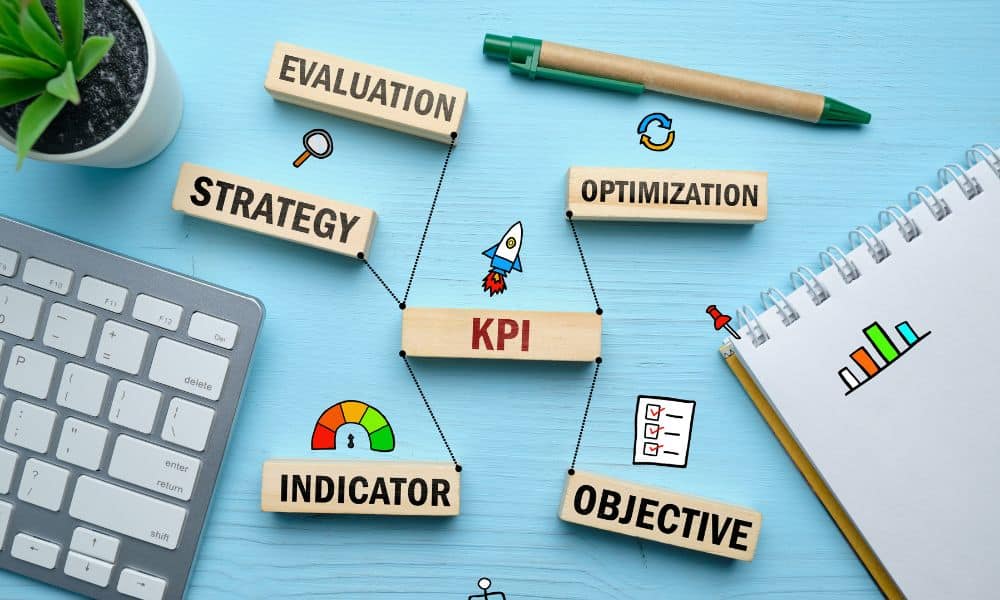Let’s Break Down Sales Motivation
Motivating a sales team is one of the most critical—and challenging—tasks facing sales leaders today. In a world where sales professionals are bombarded with targets, quotas, and endless sales metrics, it’s easy for motivation to wane. Traditional approaches that focus solely on sales KPIs and numbers often miss the mark, leaving sales reps feeling disconnected from the bigger picture.
True sales motivation goes beyond spreadsheets and dashboards. It’s about inspiring your sales force to see the value in their work, connect with customers, and strive for personal and team growth. When sales teams are genuinely motivated, they don’t just chase revenue—they build lasting customer relationships, innovate in their sales processes, and drive business growth that stands the test of time.
Understanding what really motivates your sales team members is the first step toward unlocking their full potential and achieving sales success.
The Sales KPI Myth
Many sales leaders believe that sharing sales KPIs—like revenue, closed deals, or lead response time—will automatically motivate their teams. But here’s the reality: most sales professionals don’t wake up excited about monthly recurring revenue or customer acquisition cost. Numbers alone often feel abstract and disconnected from their daily efforts. If you’ve noticed your sales KPIs aren’t motivating your team, you’re not alone. Traditional approaches that focus solely on sales KPIs and numbers often miss the mark, leaving sales reps feeling disconnected from the bigger picture. Sales dashboards are often used to visualize these KPIs, but may not address the underlying drivers of sales performance.
Effective motivation requires shifting focus from raw data to the human side of sales. When sales reps see how their work impacts customers and contributes to company success, they feel more driven. By reframing KPIs as part of a larger story—one that highlights personal growth, team achievements, and customer value—you can ignite lasting motivation and business growth that goes beyond numbers. Focusing solely on sales performance metrics can overlook the importance of team engagement and motivation.
Why Traditional Sales KPIs Fail to Inspire

Key performance indicators are essential for tracking progress, but on their own, they rarely inspire action. Organizations use KPIs to track progress toward sales goals and monitor performance against set targets, but this tracking alone does not drive motivation. Sales reps often view KPIs as distant targets rather than achievable milestones. Without emotional connection or clear relevance, numbers can feel like pressure instead of purpose. This disconnect leads to frustration, burnout, and disengagement.
To inspire true drive, KPIs need context and meaning. When reps understand how each metric ties to their personal goals and the company’s mission, motivation flourishes. Providing stories, feedback, and recognition alongside KPIs transforms cold data into powerful motivators that fuel consistent, passionate effort.
Understanding Sales Success
Sales success isn’t just about closing deals or hitting monthly sales goals. It’s about creating lasting value for both your customers and your company. The most successful sales teams focus on building strong customer relationships, understanding customer needs, and delivering solutions that drive long-term satisfaction and loyalty.
Key performance indicators like customer lifetime value (CLV), customer retention, and average purchase value provide a more complete picture of sales success than just tracking new customers acquired or revenue targets. When sales reps prioritize the customer experience and look beyond the immediate sale, they help reduce customer churn and increase the overall lifetime value of each account.
Sales success also means empowering your team members to grow, learn, and take ownership of their results. By celebrating both the big wins and the small milestones, you create a culture where every sales rep feels valued and motivated to contribute to the team’s performance and the company’s objectives.
Understanding the Motivation Gap
Sales Reps Are People, Not Robots. Behind every sales number is a person with unique ambitions, fears, and motivations. Numbers don’t address what really drives sales professionals: recognition, personal growth, meaningful teamwork, and a sense of accomplishment. Treating reps like cogs in a machine ignores these human needs and stifles motivation.
To close the motivation gap, sales leaders must connect on a personal level. Celebrate individual strengths, listen to challenges, and tailor support. When reps feel valued as people, not just performers, they become more engaged, resilient, and committed to achieving success.
The Limits of “One Size Fits All” Metrics
Sales Teams Want Personal Relevance. Generic, broad sales metrics often leave reps feeling disconnected from the sales process. When goals are one-size-fits-all, they fail to resonate with individual team members’ roles, strengths, and aspirations. This lack of personalization dampens enthusiasm and reduces ownership.
Personalizing sales goals bridges the gap between company vision and individual ambition. Sales managers can work with reps to create sales goals that are tailored to their strengths and career aspirations, ensuring each target is actionable and meaningful. By aligning targets with each rep’s unique journey and providing tailored feedback, managers foster deeper engagement. Personal relevance transforms KPIs from abstract numbers into motivating milestones that drive daily effort and long-term success.
The Power of Purpose-Driven Sales Teams
Top sales organizations like Salesforce and HubSpot excel by linking every sales activity to a larger mission. When reps understand how their calls, meetings, and pitches contribute to customer success and business growth, their work gains meaning beyond quotas. Purpose-driven teams feel inspired and aligned.
This connection fuels motivation and resilience, especially during challenging sales cycles. By consistently communicating the “why” behind tasks and celebrating the impact on customers, companies create a culture where every team member feels empowered to contribute to shared success.
Make Recognition a Daily Habit: Celebrate More Than Just Numbers
Recognition is a powerful motivator, but it shouldn’t be reserved for hitting monthly revenue targets. Celebrating progress, effort, and creative sales strategies on a daily basis energizes teams and fosters a positive atmosphere. Simple shoutouts on Slack or team calls can make a big difference.

Frequent recognition builds momentum and reinforces behaviors that lead to success. When reps know their hard work is noticed and appreciated, they stay engaged and motivated to push through tough days and ambitious goals.
Social Motivation: Peer Influence
Peer-to-peer motivation taps into natural competitiveness and camaraderie. Google’s use of “leaderboard shoutouts” and collaborative contests shows how friendly competition drives team performance and makes the sales floor fun. When team members cheer each other on, motivation soars.
Social motivation fosters connection and accountability. It encourages reps to learn from top performers and strive for improvement while maintaining a supportive environment. Harnessing peer influence transforms individual efforts into collective achievement.
The Role of Sales Contests and Gamification
Sales contests and gamification inject fun into daily tasks, transforming routine work into engaging challenges. Gamification is recognized as one of the key strategies for boosting motivation and engagement among sales teams. Companies like Spinify, HubSpot, and Microsoft use points, badges, and leaderboards to boost engagement and reward top performers. This playful approach energizes reps and sustains motivation.
Gamification encourages consistent activity by making progress visible and rewarding diverse achievements. It appeals to various personality types and keeps competition healthy. By turning sales into a game, organizations foster enthusiasm and drive results beyond traditional incentives.
Team-Based Goals Over Individual Pressure
Focusing on team goals rather than just individual quotas promotes collaboration and reduces burnout. IBM’s sales teams set ambitious quarterly targets collectively, encouraging members to support each other and celebrate shared wins. This approach builds trust and camaraderie.
Team-based goals create a sense of belonging and collective responsibility. When success is shared, motivation deepens, and even those struggling feel empowered by the group’s momentum. This fosters sustainable engagement and long-term performance improvements.
Focus on Growth, Not Just Outcome
Continuous learning and skill-building keep sales reps engaged beyond chasing numbers. Training on sales pitch techniques, objection handling, and roleplay exercises, like SAP’s regular sprints, provide tangible growth opportunities and boost confidence. Sharing practical sales tips can further support reps’ development and motivation by offering actionable advice they can apply immediately.
Prioritizing development over just results nurtures a growth mindset. Reps feel valued and motivated to improve, which leads to better performance and greater job satisfaction. Investing in skills creates a resilient team ready to tackle evolving sales challenges.
Storytelling That Connects
Human stories resonate more than raw data. Microsoft’s sales leadership highlights customer success stories to connect reps with the real-world impact of their efforts. These narratives inspire pride and reinforce purpose.
Storytelling makes sales achievements relatable and memorable. It fosters emotional engagement and reminds teams why their work matters. Sharing wins through stories cultivates motivation and strengthens the team’s commitment to customer success.
Building an Environment of Psychological Safety
Sales teams thrive when they feel safe to take risks and learn from failures. Google’s culture of psychological safety encourages innovation and continuous improvement. Reps are more willing to try new strategies and share ideas without fear.
Creating this environment boosts morale and drives long-term success. When experimentation is welcomed, teams adapt faster and discover better ways to win. Psychological safety transforms challenges into opportunities for growth.
Personalized Sales Coaching
Tailored coaching addresses individual reps’ strengths and weaknesses, delivering more motivation than generic KPI tracking. Spinify’s AI Coaching Agent provides real-time, actionable feedback that helps reps improve and stay engaged.

Personalized coaching builds confidence and accountability. It shows reps they are supported and invested in, which enhances motivation and performance. Coaching transforms data into meaningful growth opportunities.
Emphasize Progress Over Perfection
Recognizing steady improvement, not just final outcomes, sustains motivation through tough sales cycles. Celebrating incremental progress encourages reps to keep pushing, even when quotas seem distant.
Focusing on progress builds resilience and momentum. It shifts the mindset from fear of failure to embracing growth. This approach nurtures a motivated, persistent sales team ready to achieve ambitious revenue targets.
Aligning Sales and Marketing Teams
When sales and marketing share business goals and messaging, morale improves, sales cycles shorten, and revenue grows. HubSpot exemplifies this synergy by fostering collaboration and consistent communication between teams.
Alignment ensures that all team members work toward the same objectives, creating clarity and focus. This unity energizes reps and marketers alike, driving better customer experiences and business success.
Make Goals SMART and Attainable
SMART goals—specific, measurable, achievable, relevant, and time-bound—clarify expectations and boost motivation. Setting smart sales goals is essential to ensure clarity and accountability within your sales team. Companies like Slack and Asana use this framework to make sales targets meaningful and trackable.
Clear, attainable goals reduce overwhelm and increase commitment. Reps understand what’s expected and how to succeed, which fosters confidence and drives consistent effort toward business growth.
Use Real-Time Feedback: Instant Recognition Changes Behavior
Real-time feedback keeps reps engaged by celebrating wins as they happen. Spinify’s gamified dashboards and notifications provide immediate recognition that reinforces positive behaviors.
Instant feedback creates momentum and encourages reps to maintain high performance. It turns motivation into a continuous cycle, ensuring sustained energy throughout the sales process.
Provide Multiple Paths to Success
Offering contests and rewards for diverse achievements—like most improved, best customer feedback, or highest activity—recognizes varied strengths and keeps motivation broad. This approach values more than just top revenue earners.
Multiple success paths engage different personality types and encourage well-rounded performance. It fosters inclusivity and ensures every team member feels appreciated and driven to contribute.
Non-Monetary Rewards that Matter
Recognition, Flexibility, and Experiences. Non-monetary rewards such as extra PTO, public recognition, and development opportunities often motivate sales teams as much as cash incentives. Peer bonus programs and learning stipends exemplify this approach.
These rewards address deeper needs for appreciation and growth. They enhance job satisfaction and loyalty, creating a motivated, committed sales force.
Encourage Autonomy and Ownership
Give Reps Control. Allowing sales reps to set personal goals and choose sales strategies fosters ownership and intrinsic motivation. When reps control their path to success, engagement and accountability rise.
Autonomy empowers creativity and innovation. It builds confidence and drives reps to achieve success on their own terms, benefiting both individuals and the organization.
Highlight Customer Lifetime Value (CLV)
Shift Focus from Short-Term to Long-Term. Emphasizing customer lifetime value motivates teams to build lasting relationships rather than just close quick deals. Average revenue per customer is a key component in calculating CLV, helping businesses understand the long-term value each customer brings.
This long-term perspective encourages quality interactions and sustained revenue growth.
Focusing on CLV aligns sales efforts with business sustainability. It fosters customer-centric behaviors that drive retention and maximize value over time.
Transparent Communication: Honesty Builds Trust
Sales professionals want transparency about the “why” behind goals. Microsoft and Salesforce share the reasoning and strategy behind KPIs and targets, building trust and buy-in.
Open communication reduces uncertainty and aligns team efforts. Trusting reps with information motivates them to perform confidently and collaboratively.
Sales Leadership Sets the Example
Lead with Energy and Authenticity. Engaged, energetic, and authentic sales managers inspire higher performance across the team. A strong sales leader sets the tone for motivation and team culture, ensuring that the team is aligned and driven toward shared goals. Leaders who model motivation set the tone and culture for success.
Authentic leadership builds respect and connection. It energizes team members to emulate positive behaviors and strive for excellence.
Consistency in Motivation
Small, consistent motivational actions every day have a bigger impact than occasional bonuses or events. Daily encouragement and recognition sustain energy and focus over time, creating a rhythm that keeps sales reps engaged and ready to tackle their goals. Whether it’s a quick shoutout in a team chat, a personal note of appreciation, or acknowledging progress in a meeting, these small gestures add up to a powerful culture of motivation.
Consistency builds habits and a positive culture. It ensures reps stay motivated through ups and downs, driving steady progress toward goals. When motivation becomes part of the daily routine, it fosters resilience and helps prevent burnout. Sales managers who prioritize daily motivation set the stage for sustained performance and a thriving sales floor.
Empower Peer Recognition
Peer recognition programs, like those at LinkedIn and Google, allow reps to nominate colleagues for teamwork, creativity, or effort. This fosters a supportive and motivating environment where every team member feels seen and valued beyond just their individual numbers. Encouraging peers to celebrate each other’s contributions builds a strong sense of community and shared purpose.

Peer recognition strengthens relationships and accountability. It encourages collaboration and celebrates diverse contributions, boosting overall team morale. When reps receive praise from their peers, it often feels more genuine and impactful, reinforcing positive behaviors and motivating others to follow suit. This approach also helps break down silos, encouraging knowledge sharing and collective problem-solving.
Visualization of Progress: Dashboards Make a Difference
Digital dashboards, such as Spinify’s, display team progress, contests, and wins in real time. Sales dashboards are essential tools for visualizing and tracking key sales KPIs, enabling business leaders to monitor performance and identify trends quickly. These visual tools translate complex sales data into easy-to-understand formats that keep goals visible and top of mind.
Visual feedback reinforces positive behavior and keeps goals top of mind. Seeing progress, rankings, and milestones in real time inspires action and healthy competition among sales reps. It helps reps track their journey, celebrate small wins, and stay motivated to achieve targets. Moreover, dashboards provide transparency, allowing both sales managers and reps to identify areas for improvement and celebrate successes together, fostering a culture of continuous growth and accountability.
Harness the Power of Storytelling
Make Data Relatable. Sharing stories about how specific sales activities led to customer success or business growth makes data meaningful. It connects reps emotionally to their work.
Storytelling transforms abstract numbers into inspiring narratives. It builds pride and reinforces the impact of every effort.
Personal Development Plans
Invest in Career Growth by supporting personal growth through development plans, mentorship, and training resources motivates reps to improve and stay committed. Career investment signals value beyond quotas.
Development opportunities boost confidence and skills. They foster loyalty and prepare teams for future challenges and success.
Support Work-Life Balance
Happy Reps = Motivated Reps. A healthy work-life balance enhances sales productivity and results. Companies like HubSpot and Salesforce offer flexible schedules to support personal needs.
Balancing work and life reduces burnout and increases job satisfaction. Motivated reps bring energy and focus to their roles.
Make Metrics Meaningful
Providing context for KPIs—explaining how goals impact the company, customers, and individual careers—makes metrics motivating rather than intimidating. Connecting each metric to a clear sales goal, such as acquiring a set number of customers or increasing market share, ensures that team members understand the tangible objectives behind the numbers.
Meaningful metrics connect numbers to purpose. They inspire reps to see their role in the bigger picture and strive for success.
Use Motivational Sales Quotes
Starting meetings or contests with motivational sales quotes from leaders and top performers energizes teams. Quotes can shift mindsets and spark motivation.
Motivational words remind reps of their potential and the importance of their work. They create a positive atmosphere that drives action.
Celebrate Effort, Not Just Results
Acknowledging hard work, persistence, and extra effort, not just closed deals or new customers acquired, fosters a growth mindset and sustained motivation. While the ability to close deals is important, recognizing the effort leading up to those wins is equally valuable. Sales reps often face rejection, long hours, and complex challenges that don’t always immediately translate into visible results. Celebrating the consistent effort they put in daily helps reinforce the behaviors and habits that lead to success over time.

Celebrating effort encourages reps to keep pushing, even when results lag. It builds resilience and a culture of continuous improvement. Recognitions such as “most calls made,” “best follow-up persistence,” or “creative problem solving” highlight the journey, not just the destination. This approach reduces pressure on immediate outcomes and supports reps in developing skills and confidence, ultimately leading to stronger sales performance and higher job satisfaction.
Encourage Friendly Competition
Team-based challenges, like Salesforce’s cross-region contests, promote camaraderie and keep the sales floor fun. Healthy competition boosts performance without alienation. When competition is framed as a way to learn from peers and celebrate collective progress, it motivates sales reps to improve their skills and outcomes without fostering resentment or isolation.
Friendly competition motivates reps to improve and collaborate. It creates energy and engagement that drive collective success. By incorporating leaderboards, team challenges, and rotating rewards, sales managers can sustain excitement and encourage reps to push their limits in supportive environments. This also helps build team cohesion and shared pride in achievements, which can translate into higher morale and better retention.
Provide Tools for Success: Invest in Enablement
Equipping teams with up-to-date sales technology, CRM, and enablement tools makes achieving goals easier and more rewarding. Software as a service solutions can further streamline sales processes and improve team efficiency. Tools streamline processes and support reps by automating administrative tasks, providing real-time data insights, and facilitating communication across sales and marketing teams.
Proper tools reduce friction and empower reps to focus on selling. Enablement investments lead to higher productivity and better results. For example, CRM platforms that integrate customer data, automate follow-ups, and track sales activities help reps prioritize leads and personalize outreach. Training on these tools ensures reps maximize their potential. Additionally, mobile access to sales resources allows reps to stay productive on the go, increasing responsiveness and closing rates. Ultimately, investing in the right tools signals to your sales team that their success is a priority and that they have the support needed to excel.
Foster a Learning Culture
Curiosity Is Contagious, encouraging knowledge sharing and continuous learning cultivates curiosity and growth. A learning culture keeps reps engaged and adaptable.
Learning opportunities inspire innovation and skill development. They prepare teams for evolving sales challenges and success.
Understand Individual Motivators: One Size Doesn’t Fit All
Recognizing each team member’s unique motivators—whether recognition, career growth, financial rewards, or flexibility—allows tailored motivation strategies that resonate. Motivating sales teams through these personalized approaches leads to higher performance and a more engaged, success-oriented environment.
Personalized motivation respects diversity and boosts engagement. It ensures every rep feels valued and driven.
Gamify the Sales Process: Inject Fun Into Everyday Activities

Gamification tools like Spinify’s badges and real-time contests make sales tasks more engaging and rewarding. Fun elements increase participation and enthusiasm by turning routine activities into exciting challenges. When sales reps earn points, badges, or climb leaderboards, they experience a sense of achievement that goes beyond traditional incentives. This playful approach not only boosts morale but also encourages consistent effort and healthy competition.
By incorporating gamification into the sales process, companies can motivate reps to hit daily, weekly, and monthly targets while fostering a positive team culture. Gamification appeals to diverse personality types, offering multiple ways to succeed and be recognized. It also provides instant feedback, helping reps track their progress and adjust strategies in real time. Ultimately, gamification transforms work into play, sustaining motivation and driving continuous improvement across the sales floor.
Celebrate Milestones Along the Way
Breaking large goals into smaller milestones and celebrating each win fuels motivation and momentum throughout the sales cycle. Recognizing incremental achievements keeps energy high and progress visible, helping reps stay focused and optimistic on the path to success. Whether it’s closing a key deal, reaching a call quota, or booking a challenging meeting, every milestone deserves acknowledgment.
Regular celebrations—such as shoutouts during team meetings, personalized messages, or small rewards—reinforce positive behaviors and build confidence. They remind sales reps that their efforts matter and contribute to the bigger picture. This approach also reduces overwhelm by making ambitious targets feel achievable through steady, manageable steps.
By fostering a culture that values progress as much as results, sales managers can sustain engagement and encourage persistence, even during tough sales cycles. Celebrating milestones creates a rhythm of success that propels the entire team forward.
Involve the Entire Team in Goal Setting
Inviting input from sales reps when setting targets fosters ownership and commitment. The sales manager plays a key role in guiding collaborative goal-setting sessions, ensuring that team input is valued and aligned with overall sales strategies. Inclusive goal setting aligns individual and company objectives, making goals more relevant and motivating for each team member.
When reps participate in defining their sales goals, they feel empowered and accountable for their success. This collaborative approach encourages open communication, allowing managers to understand challenges and aspirations while tailoring support accordingly. It also builds trust and strengthens team cohesion, as everyone works toward shared objectives.
Engaged reps who co-create their targets are more likely to take initiative, stay motivated, and contribute innovative ideas. By fostering a sense of ownership and alignment, inclusive goal setting transforms sales targets from top-down mandates into energizing commitments that drive performance and business growth.
Use Data for Personal Coaching
Leveraging sales data to provide individual feedback and targeted coaching drives motivation and improvement beyond team-wide metrics. Over time, this approach can significantly enhance the team’s performance by aligning individual growth with collective goals.

Data-driven coaching personalizes development. It helps reps understand strengths and areas for growth, boosting performance. By analyzing detailed sales metrics such as call duration, conversion rates, and follow-up effectiveness, managers can identify specific behaviors that lead to success or need improvement. This enables tailored coaching sessions that focus on practical skills, like refining sales pitches or improving objection handling.
Moreover, continuous monitoring of individual KPIs allows for timely interventions, preventing small issues from becoming major obstacles. Personalized coaching fosters a growth mindset, empowering sales reps to take ownership of their development and feel supported in their journey toward achieving sales targets. This individualized attention not only improves skillsets but also increases engagement and morale across the sales team.
Align Incentives With Team Values
Connecting incentives and recognition to company values, customer service, and personal growth motivates reps beyond revenue targets. When incentives reflect the broader mission and culture of the organization, sales professionals feel their work contributes to something meaningful, which enhances motivation and loyalty.
Value-aligned incentives foster meaningful engagement. They encourage behaviors that support long-term success and culture. For instance, rewarding reps who demonstrate exceptional customer care, teamwork, or innovative problem-solving reinforces the importance of these qualities. This approach balances financial rewards with recognition of effort and character, appealing to diverse motivators within the team.
Additionally, integrating non-monetary rewards such as professional development opportunities, extra time off, or public acknowledgment can resonate deeply with sales reps seeking growth and work-life balance. Aligning incentives with core values also builds a cohesive team culture where everyone understands and strives toward shared goals, ultimately driving sustained business success.
Measure What Matters Most: Choose KPIs That Reflect Impact
Selecting KPIs that drive business growth and team motivation—like customer retention or deal velocity—focuses efforts on what truly matters. Tracking qualified leads is also essential, as it serves as a critical indicator of sales effectiveness and helps ensure the team is targeting and converting high-quality prospects.
Impactful KPIs clarify priorities and inspire reps to contribute to sustainable success. Instead of overwhelming teams with numerous metrics, focusing on a balanced mix of leading and lagging indicators provides clarity and direction. For example, measuring customer retention highlights the value of nurturing existing customers, while deal velocity tracks how efficiently deals move through the sales funnel.
Incorporating KPIs related to customer contract renewals and upsells further aligns sales activities with long-term revenue goals. By emphasizing metrics that reflect both immediate results and future growth potential, sales managers can motivate reps to balance short-term wins with strategic relationship building.
Regularly reviewing and communicating these KPIs ensures transparency and helps reps understand how their daily activities contribute to broader business objectives. This focused measurement approach transforms sales data into actionable insights, fueling motivation and driving improved sales performance.
Track Leading and Lagging Indicators
Measuring both sales activities (calls, meetings) and results (deals closed, revenue) provides a holistic view that motivates reps to focus on effective behaviors. Tracking the number of cold calls, the effectiveness of each cold call, and the overall cold calling strategy can provide valuable insights into sales activity and pipeline health.
Balanced tracking supports continuous improvement. It helps reps see how daily actions lead to success. Leading indicators like the number of sales calls or meetings scheduled give early signals of future performance, while lagging indicators such as deals closed and sales revenue confirm whether goals are being met. By monitoring both, sales managers can identify bottlenecks in the sales process and provide timely coaching to keep the team on track.
Incorporating dashboards that visualize these indicators allows sales reps to understand their progress in real time, reinforcing accountability and encouraging proactive behavior. This comprehensive approach ensures that motivation is sustained not just by end results but also by recognition of consistent effort and strategic activity.
Prioritize Customer Relationships: It’s About People
Motivating teams to build genuine customer relationships, not just chase numbers, creates lasting value and satisfaction. When sales reps focus on understanding customer needs, delivering tailored solutions, and nurturing ongoing connections, they contribute to higher customer retention and increased customer lifetime value.
Customer-centric motivation aligns reps with business goals. It enhances loyalty and revenue over time. Encouraging reps to view their work through the lens of customer success fosters a sense of purpose and pride. This mindset shift can lead to more meaningful interactions, better referrals, and stronger brand reputation.
Sales managers can support this by providing training on relationship-building skills, sharing success stories that highlight customer impact, and recognizing behaviors that prioritize customer satisfaction. When reps see the direct correlation between their efforts and positive customer outcomes, motivation deepens and sales performance improves.
Give Real-Time Recognition

Using platforms like Spinify to give immediate shoutouts for achievements keeps motivation high and reinforces positive behaviors. Real-time recognition can significantly boost morale and performance among sales representatives.
Real-time recognition energizes reps and sustains momentum throughout the sales process. Instant feedback on activities such as making a key sales call, booking a meeting, or closing a deal creates a positive reinforcement loop that encourages repetition of successful behaviors. This immediacy helps maintain focus and enthusiasm, especially during challenging sales cycles.
Moreover, public recognition through leaderboards, badges, and social channels fosters healthy competition and camaraderie within the team. It allows peers to celebrate each other’s wins, building a supportive culture that values effort and achievement.
Sales managers can enhance this effect by integrating recognition tools with CRM systems, ensuring that achievements are tracked and celebrated seamlessly. By making recognition a daily habit rather than an occasional event, organizations can keep their sales floor motivated, engaged, and aligned toward shared success.
Encourage Ownership of Results
Empowering reps to track and share their own progress, goals, and wins fosters accountability and intrinsic motivation. When sales representatives take ownership of their sales pipeline, they become more engaged in managing and nurturing prospects proactively. This sense of control encourages them to develop personalized strategies to overcome obstacles and seize opportunities, leading to improved sales outcomes.
Ownership drives engagement and performance. Reps become active participants in their success, taking initiative to identify areas for improvement and celebrating their milestones. Providing tools such as self-service dashboards or mobile apps enables reps to monitor their metrics in real-time, increasing transparency and reinforcing responsibility. When reps feel that their efforts directly influence their results, motivation intensifies, creating a culture of empowerment and continuous growth.
Promote Peer Learning: Learn From the Best
Pairing new sales reps with top performers for mentorship accelerates skill development and motivation. Through peer learning, new reps can observe and adopt best practices for how to qualify leads, handle objections, and close deals effectively. This hands-on guidance builds confidence and shortens the ramp-up time, enabling quicker contributions to team goals.
Peer learning also fosters a collaborative environment where knowledge sharing becomes the norm. By encouraging regular check-ins, role-playing sessions, and joint sales calls, teams cultivate trust and camaraderie. Experienced reps benefit as well by reinforcing their expertise and developing leadership skills. This dynamic exchange nurtures a culture of continuous growth and collective success, where every team member feels supported and motivated to excel.
Offer Varied Rewards
Providing a mix of rewards—public recognition, personal notes, professional development opportunities, and unique experiences—appeals to diverse personalities and keeps motivation high across the sales team. Not everyone is motivated by monetary incentives alone; some value career advancement, while others thrive on social acknowledgment or work-life balance perks.
Tailoring rewards to individual preferences enhances engagement and inclusivity. For example, some reps may appreciate a shoutout during a team meeting, while others prefer private praise or opportunities to attend industry conferences. Offering flexible rewards such as extra paid time off, skill-building workshops, or team outings encourages sustained motivation and loyalty. By recognizing varied contributions and celebrating different forms of success, sales managers create an environment where every team member feels valued and driven to perform their best.
Listen and Adjust: Feedback Fuels Growth
Regularly surveying sales teams about what motivates them and adapting strategies accordingly ensures motivation stays relevant and effective. Gathering feedback through anonymous surveys, one-on-one conversations, and team meetings helps sales managers understand the unique drivers and challenges each rep faces. This ongoing dialogue allows leaders to fine-tune motivational approaches, whether that means adjusting incentives, changing communication styles, or introducing new recognition programs.
Responsive leadership builds trust and fosters continuous improvement. When sales reps see their input valued and acted upon, they feel respected and empowered, leading to higher engagement and commitment. This dynamic feedback loop creates a culture where motivation evolves alongside the team’s needs and market realities, ensuring sustained sales success.
Embrace Flexibility and Adapt to Change
Staying open to new motivational strategies as the sales world evolves—remote work, new tech, changing customer expectations—keeps teams agile and engaged. Flexibility means recognizing that what worked yesterday might not work today, and being willing to experiment with different approaches like virtual contests, personalized coaching sessions, or flexible goal-setting.
Flexibility supports resilience and sustained success in dynamic environments. Sales managers who foster a flexible mindset encourage their teams to adapt quickly to shifting sales cycles, emerging customer trends, and evolving company priorities. This adaptability not only maintains motivation during uncertain times but also positions the sales team to capitalize on new opportunities and overcome obstacles with confidence.
Practice Radical Transparency: Share Both Successes and Failures
Openly discussing what works and what doesn’t creates trust and collective improvement, driving motivation and team cohesion. Radical transparency involves sharing sales results, strategies, and lessons learned—both positive and negative—with the entire team. This openness demystifies the sales process and reduces fear around mistakes, encouraging reps to take risks and innovate.

Transparent communication empowers reps to learn and grow together. When sales leaders model vulnerability by acknowledging failures and celebrating learning moments, they foster a safe environment where continuous improvement thrives. This culture of honesty strengthens collaboration, builds stronger relationships among team members, and ultimately drives better sales outcomes.
Sales Strategy and Performance
A winning sales strategy is the backbone of any high-performing sales organization. It’s not just about setting ambitious sales targets—it’s about creating a clear roadmap that aligns sales activities, sales processes, and sales goals with the broader vision of the company. When sales managers and leaders craft strategies that are both flexible and focused, they empower their teams to adapt to changing market conditions and customer needs.
Performance thrives when sales reps understand how their daily actions—like sales calls, qualifying leads, and nurturing existing customers—fit into the larger sales funnel. Tracking the right sales KPIs, such as lead response time, sales cycle length, and customer acquisition costs, helps teams identify what’s working and where to improve. But the real magic happens when these metrics are paired with ongoing coaching, feedback, and recognition.
Sales leaders play a crucial role in guiding their teams, providing the tools and support needed to achieve success. By fostering a culture of collaboration, continuous learning, and accountability, sales managers can drive both individual and team performance to new heights.
Driving Sales Growth
Sustained sales growth is the result of a motivated, skilled, and customer-focused sales team. To drive real business growth, sales organizations must look beyond short-term wins and focus on building a foundation for long-term success. This means investing in the development of your sales professionals, equipping them with the latest sales technology, and creating an environment where innovation and experimentation are encouraged.
Tracking critical business metrics like monthly recurring revenue, customer acquisition, and customer lifetime value helps sales teams stay focused on what matters most. But growth also depends on nurturing existing customers, upselling where appropriate, and delivering exceptional service that turns buyers into loyal advocates.
Sales managers can accelerate growth by setting clear, attainable goals, providing regular feedback, and celebrating both individual and team achievements. By aligning sales and marketing teams, leveraging data-driven insights, and fostering a positive, energetic sales floor, you create the momentum needed to increase sales and achieve ambitious revenue targets.
What Will Motivate Your Sales Team to Succeed
The most motivated sales teams don’t just chase KPIs—they chase meaning, growth, and shared wins. By focusing on recognition, learning, storytelling, autonomy, and team culture, you’ll spark the motivation needed for real business growth. These strategies will help keep your sales team motivated and performing at their best. With Spinify’s gamified dashboards, instant recognition, and actionable coaching, you can energize your team and drive lasting results—far beyond the numbers.
Ready to try a new approach to sales motivation? Try Spinify today and transform your team’s performance!





